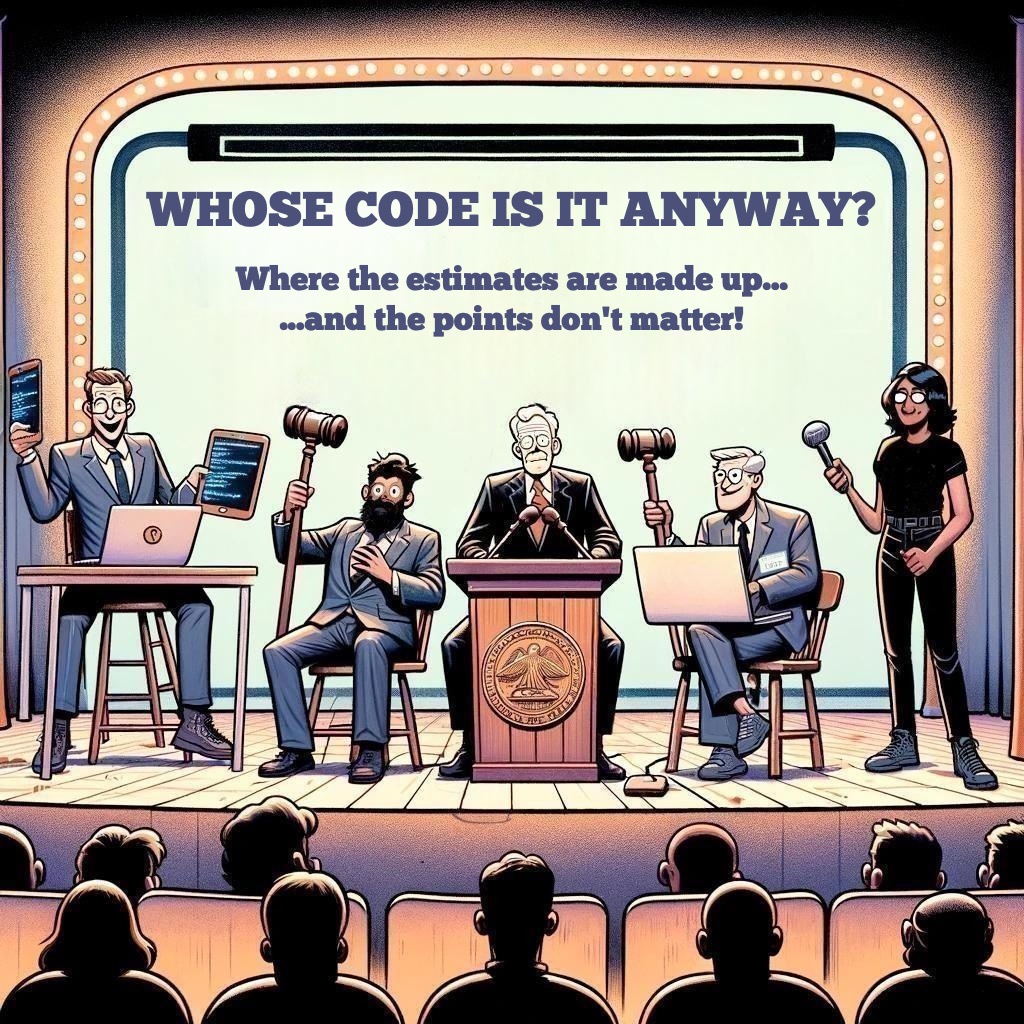Most of you have probably seen the show “Whose Line is it Anyway?”, an improvisational comedy show that has been around longer than Agile, Scrum, and likely a significant number of Scrum Masters and Agile Coaches, too. Including the original British version that debuted in 1988, there are over 500 episodes… and at least 50 of them are pretty good! At the beginning of each show, the host welcomes the audience with this description: “…the show where the games are made up, and the points don’t matter”.

Do you know what else are made up? Estimates and Story Points. We even have made-up games for estimating like Planning Poker and Affinity Sizing. And what do we do with those made-up estimates? We aggregate the story points into another made-up thing, “Velocity”. And these things can actually be okay – teams can use these made-up things as a mental exercise to help forecast when something is likely (or unlikely) to occur in the near future. That is the sole utility of velocity – as an input into considering what we plan to do next.
Unfortunately, that is not the end of the life of made-up estimates in most organizations. Velocity is one of the most abused metrics in business because too many leaders see it as a proxy for productivity. But velocity cannot tell us whether we are building the right things, nor can it tell us the value of the thing we did. Take for instance, two teams – one team estimates that 50 points will take 5 weeks to build an application that no one asked for and no one uses; the other team estimates 50 points will take 10 weeks to build an application that adds 50% more paying subscribers. Which team do you think was really more productive? It is a false assumption that getting more points done quicker automatically means more productivity in software development. Especially if the teams aren’t doing something that matters.
So if the points don’t matter, what does? John Doerr’s book “Measure what Matters” introduces Objectives and Key Results (OKRs) – a way to radiate the most important objectives to be achieved and how those objectives will be achieved. OKRs are a fine blueprint for focusing an organization to work on what matters, but they’re not the only game in town. KPIs, NCTs, customer feedback, recognition, employee surveys – all can be used to help inform and rally teams to work on things that matter. And it won’t matter how many story points it took, because those teams will be adding to the success of the organization, not just making anything as fast as possible.
Because in the end, no one really remembers how many points our teams delivered to build something with little relevance; we only remember and celebrate when teams do something that matters for the users, customers, and the organization, and even then, the points don’t matter.
